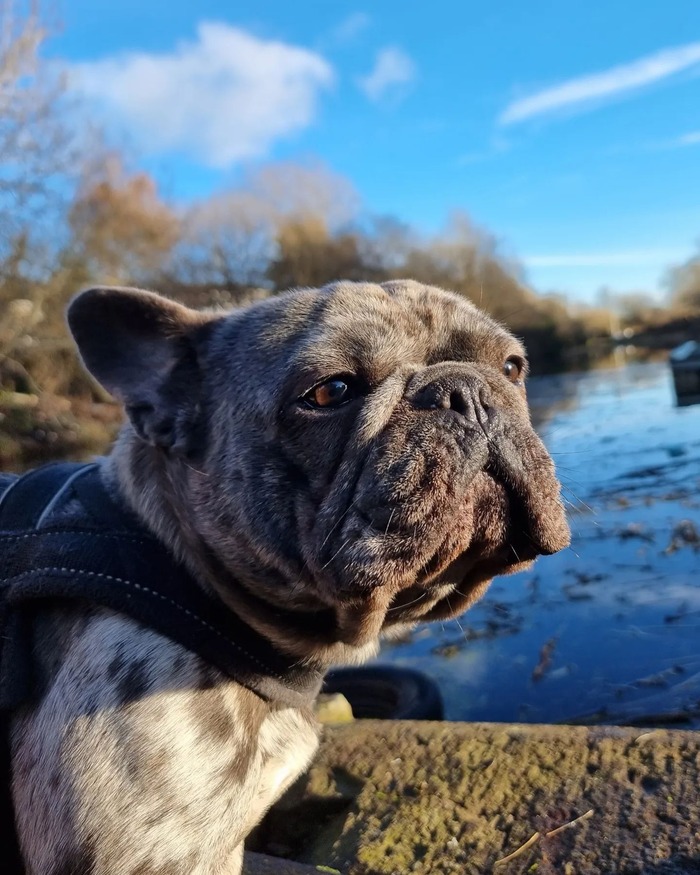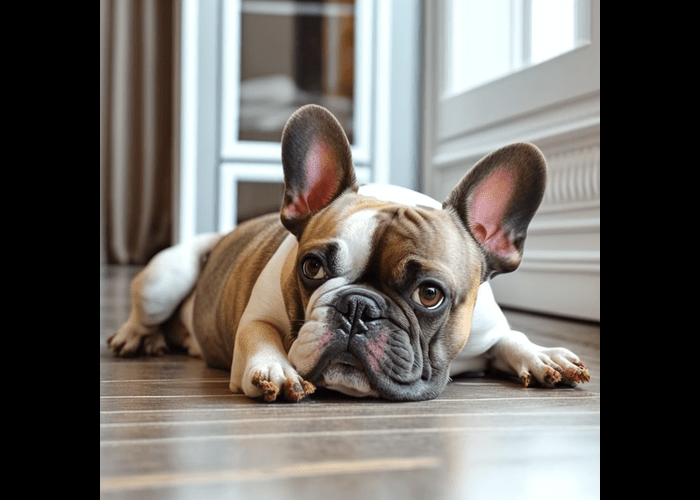The French Bulldog is a small to a medium-sized dog that is popular for its companionship. They are gentle, affectionate, and loving dogs that make great family pets. They do, however, require some exercise and stimulation to prevent boredom. This breed is not recommended for first-time dog owners as they can be challenging to train.
French Bulldogs are one of the most popular dog breeds in the United States. They are known for their cute bat ears, big eyes, and wrinkled faces. Frenchies, as they are sometimes called, is also known for being loyal and loving companions.
If you’re thinking about getting a French Bulldog, there are a few things you should know first. In this comprehensive guide to the French Bulldog breed, we will cover everything from temperament to care and training.
So whether you’re already in love with the idea of owning a Frenchie or just doing your research on the breed, read on to learn everything there is to know about the lovable French Bulldog.
The French Bulldog Basics
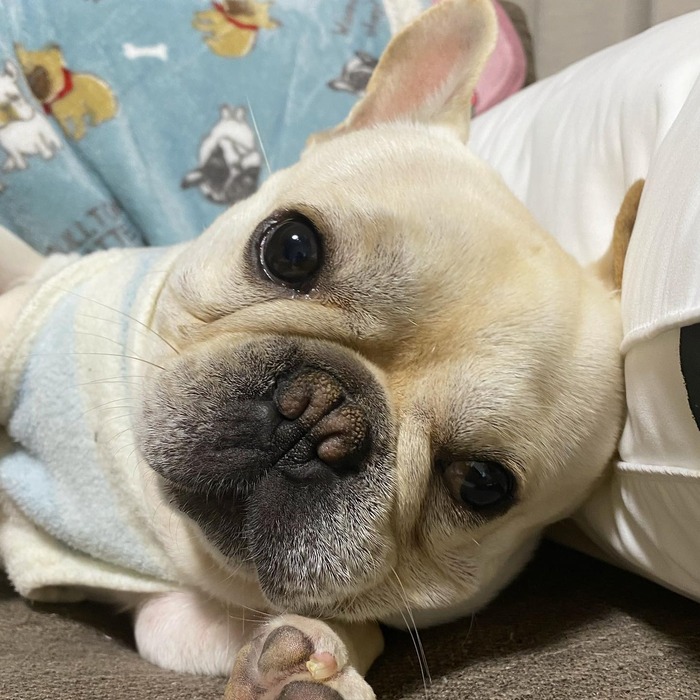
History
The French Bulldog’s history can be traced back to the 19th century in England, where they were bred as companion dogs for the upper class. They get their name from their unique appearance, which is similar to that of a bulldog. However, French Bulldogs are actually much smaller than their English counterparts.
In the 1860s, French Bulldogs were brought to France by English lacemakers who were fleeing political unrest in England. The breed quickly became popular in France, especially among Parisian celebrities and the upper class. Eventually, French Bulldogs made their way to America, where they became one of the most popular breeds in the country.
Appearance
The first thing you’ll notice about a French Bulldog is its distinctive appearance. They have a large head, round eyes, and a short snout. Their ears are pointy and stand erect, and they have a long tail that is usually straight. They typically weigh between 20 and 28 pounds and stand 12 to 16 inches tall at the shoulder, which means they can easily live in an apartment or small home without taking up too much space.

Colors & Markings
The AKC recognizes the following colors and markings for French Bulldogs: Black, brindle, cream, fawn, gray (blue), and white. Markings must be symmetrical on both sides of the dog’s body. Grooming Because they have short coats, French Bulldogs don’t require much grooming. A weekly brushing will help to remove any dirt or debris from their fur. You should also wipe their wrinkles with a damp cloth to prevent infection.
Temperament and Personality
One of the most appealing things about French Bulldogs is their loving and loyal nature. They make great companion dogs and are fiercely devoted to their families. Frenchies are also known for being playful and affectionate, and they love spending time with people. While they are typically good with children, French Bulldogs can be impatient with very young kids who don’t know how to treat them gently. It’s important to socialize your Frenchie from a young age so they learn how to interact with other people and animals.
Taking Care Of Your Frenchie
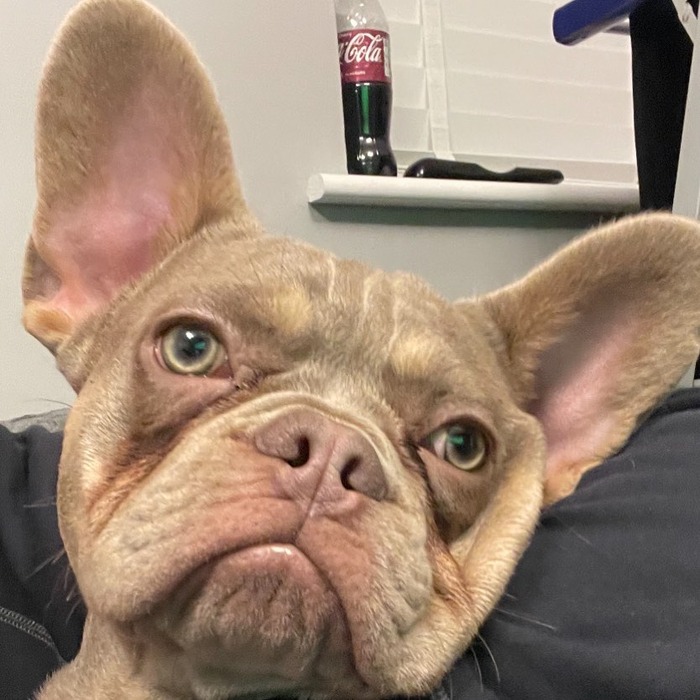
French Bulldog Training, Exercise Needs and Common Health Conditions
As with any dog breed, there are certain health conditions to be aware of with French Bulldogs. Some of the most common health problems faced by Frenchies include allergies, hip dysplasia, patellar luxation, brachycephalic syndrome (a condition that affects short-nosed breeds), and heart disease.
Because of their short snouts, French Bulldogs can also have difficulty breathing in hot weather or when they are exercised too vigorously. It’s important to keep an eye on your Frenchie in warm weather and make sure they don’t over-exert themselves during play or exercise.
When it comes to training, French Bulldogs can be stubborn but are typically quick learners. They respond best to positive reinforcement techniques such as treats or praise. Like all dogs, Frenchies need plenty of exercise, but their short snouts make them susceptible to heat exhaustion, so it’s important not to overdo it on hot days.
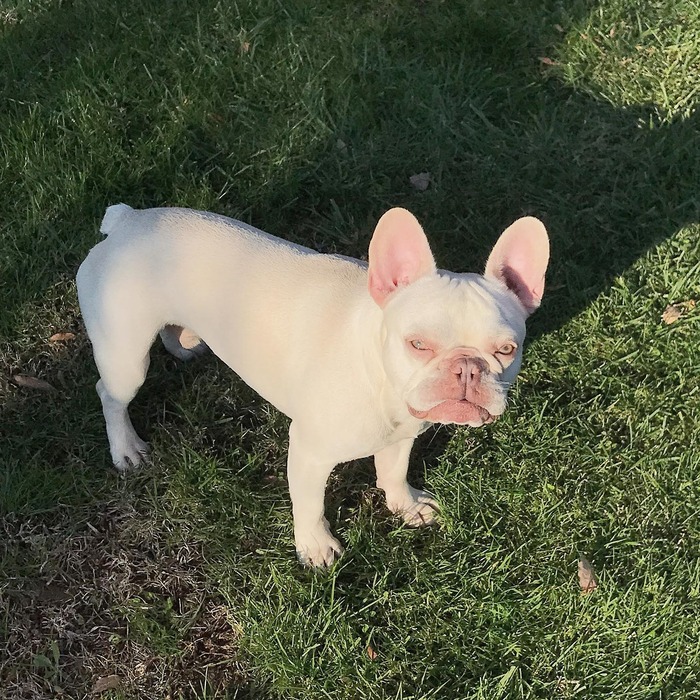
The Basics of French Bulldog Grooming
French Bulldogs are relatively easy to groom, but there are a few things to keep in mind. Their short coats shed minimally, but they do require regular brushing to remove dead hair and keep their skin healthy. They also need to be bathed regularly, but only with a mild dog shampoo to avoid drying out their skin. Their wrinkles should be cleaned daily to prevent infection, and their ears should be checked and cleaned regularly as well.
The Adoption Process
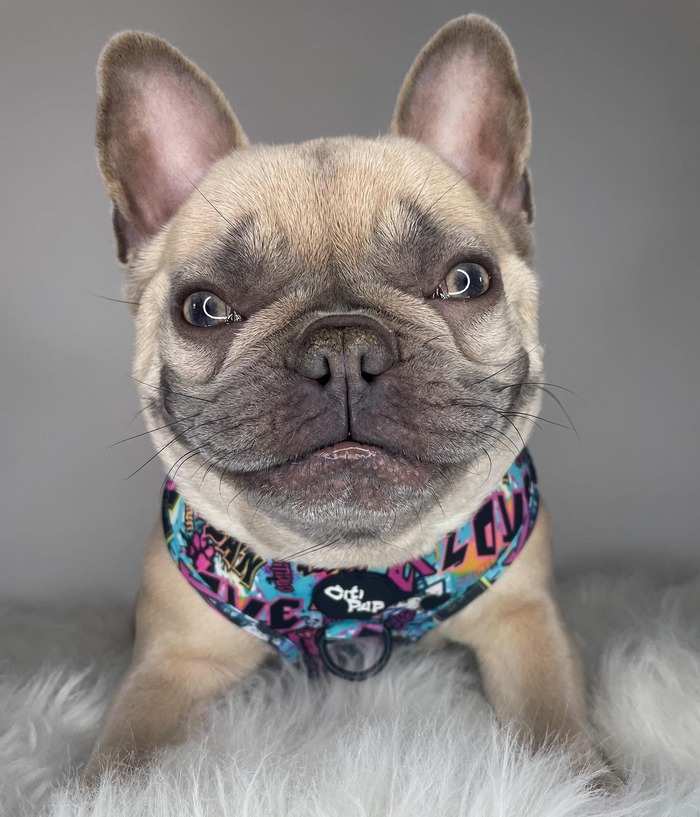
Choosing a French Bulldog Breeder
When you’ve decided that you’re ready to add a French Bulldog to your family, the next step is choosing a breeder. There are a few things to keep in mind when doing this. First, make sure that the breeder is reputable and has a good reputation. There are many ways to check this, including asking other French Bulldog owners, checking online reviews, and talking to your veterinarian.
Second, make sure that the breeder provides health clearances for their dogs. This means that the dog has been checked by a veterinarian and found to be free of genetic health problems. Third, visit the breeder’s facility and meet the puppies and their parents. This will give you a good idea of what the puppies are like and whether they seem to be well-cared for. Finally, make sure you feel comfortable with the breeder and that they are willing to answer any questions you have. Adopting a Dog from a French Bulldog Rescue or Shelter
If you’re not set on getting a puppy, another option is to adopt an adult French Bulldog from a shelter or rescue organization. This can be a great option if you’re not ready for the commitment of a puppy or if you want to adopt an older dog who is already house-trained and has some obedience training. There are many great French Bulldogs in shelters and rescues who are waiting for their forever homes.
Conclusion
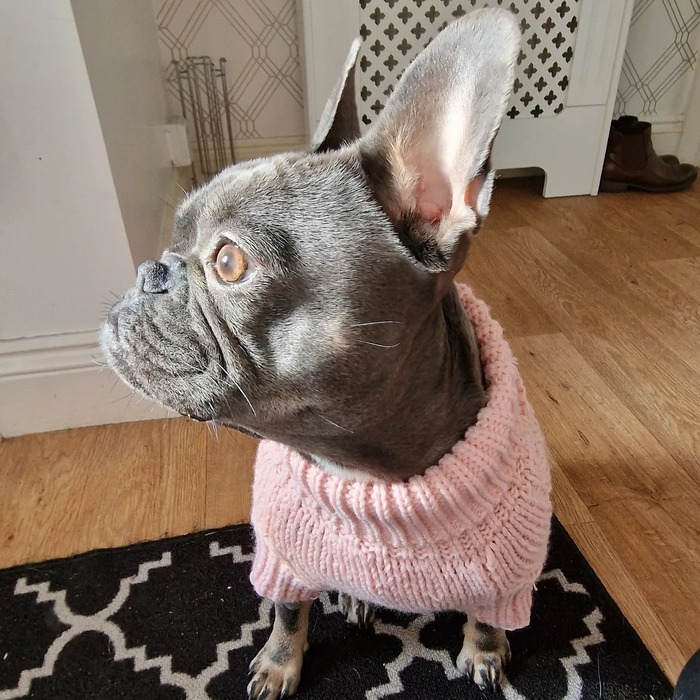
Now that you know all about the French Bulldog, it’s time to decide if this is the right breed for you. If you’re looking for a small, affectionate dog who doesn’t need a lot of exercise and can be content living in an apartment or city, then the French Bulldog may be perfect for you.
FAQs
How often should I wash my French Bulldog?
How often you wash your French Bulldog will depend on a few factors, such as whether they have any allergies or skin sensitivities and how often they go outside. If your dog goes outside frequently and gets dirty, you may need to wash them more often. Some people choose to wash their French Bulldogs once a week, while others may only wash them once every two weeks or so.
How do I increase my French Bulldog’s life span?
You can help increase your French Bulldog’s life span by feeding them a high-quality diet, making sure they get plenty of exercise and taking them to the vet regularly for checkups and vaccinations.
How much should my French Bulldog puppy weigh?
A French Bulldog puppy should weigh between 24 and 28 pounds when they are full-grown.
How do I potty-train a Frenchie puppy?
The best way to potty-train a Frenchie puppy is to start with crate training.
Do Frenchies smell?
French Bulldogs do not have an odor that is different from any other dog.
